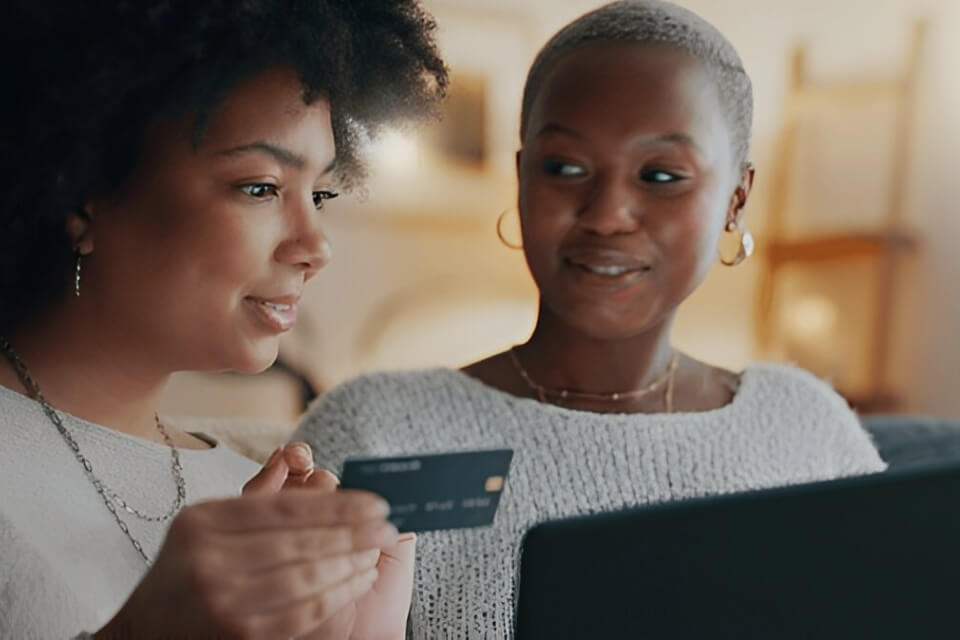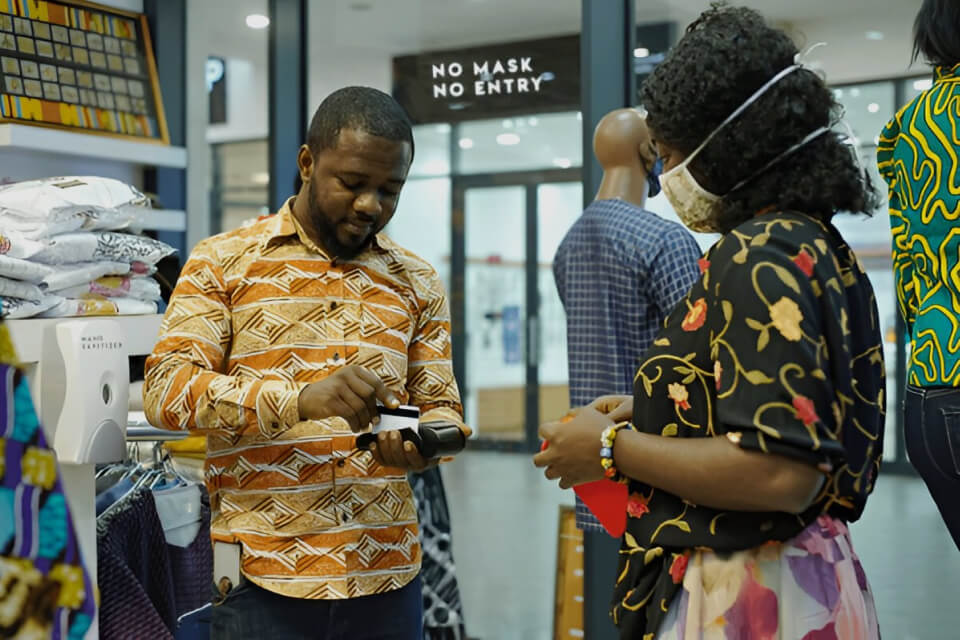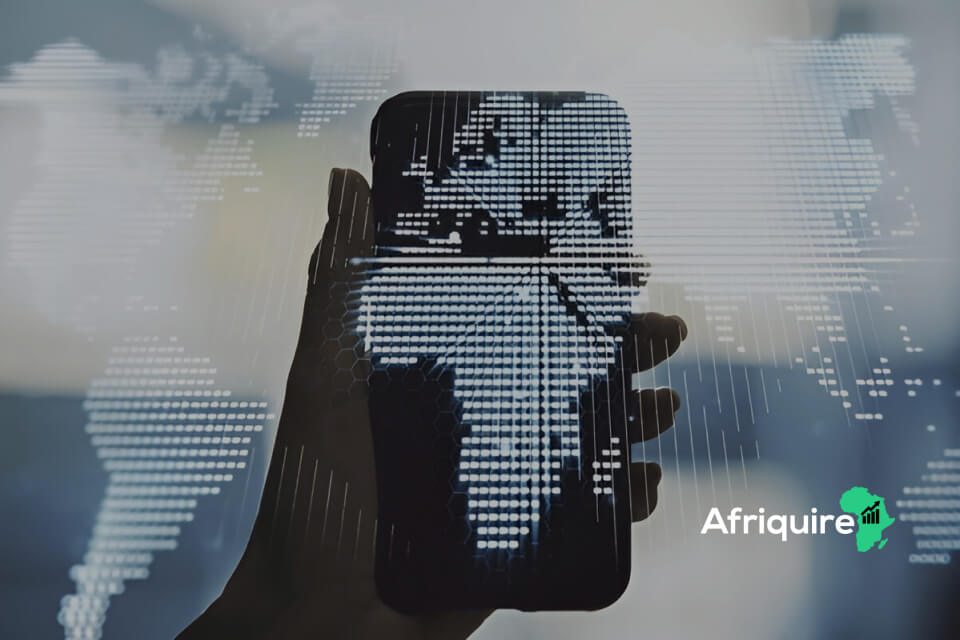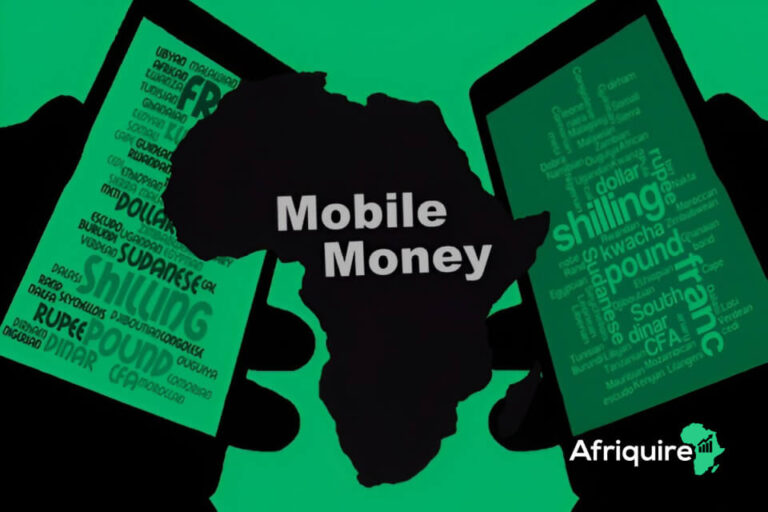- Introduction
- Impact on Unbanked and Underbanked Populations
- Digital Payment Solutions Enhancing Financial Access
- Success Stories of Financial Inclusion
- Challenges and Solutions for Increasing Financial Inclusion
- Role of Government and NGOs in Promoting Inclusion
- Frequently Asked Questions (FAQs)
- Conclusion
Introduction
The role of digital payments in financial inclusion in Africa is transformative, offering millions access to formal financial services. Digital payment systems, such as mobile money and instant payment platforms, empower underserved communities by reducing reliance on cash and increasing economic participation. However, challenges like poor infrastructure and regulatory gaps remain.
This article explores how digital payments are driving financial inclusion, describing their trends of growth, and why they matter for the future of Africa.
Definition of Digital Payments and Financial Inclusion
Digital payment (or electronic payments) are cashless transactions made through mobile wallets, bank applications, or online payment systems. Instead of cash, people are able to receive and send money with their phones or bank accounts.
Financial inclusion means making sure that everyone has access to financial services like savings, credit, and insurance. The majority of Africans do not have bank accounts, but electronic payments integrate them into the formal economy.
For example, in Kenya, M-Pesa allows people to send and receive money conveniently without a bank. This is how digital payment allows more people to keep their finances in order.
Importance of Financial Inclusion in Africa
Financial inclusion is important because it allows people to improve their lives. It allows small businesses to grow, business owners to buy better tools, and families to save for emergencies.
Over 400 million adults in sub-Saharan Africa still lack access to financial services. Banks are expensive, and not everyone lives near a bank branch. Digital payments solve this problem by making payments less expensive and convenient.
When more individuals have access to financial services, the economy expands. Governments and banks can also benefit since more people will invest in companies and pay tax. This renders digital payment a vital part of Africa’s e-commerce growth.
Overview of Digital Payment Adoption Trends
Electronic payments are gaining ground in Africa. Mobile money wallets like M-Pesa, MTN MoMo, and Airtel Money are used in a majority of countries. Ghana and Tanzania are making their systems more advanced so that different payment platforms can be linked to each other.
The youths are at the forefront because they are comfortable with technology. Digital wallets are becoming popular in Nigeria as businesses turn cashless.
However, there are still challenges. Poor internet, cybersecurity, and cost are all barriers to some people being able to use digital payments. Governments must implement sound policies that protect users and make it valuable to businesses to invest in better systems.
Digital payments are not just a convenience—they are empowering millions of Africans to get financial services and build a better future. It’s about time we joined this revolution?

Impact on Unbanked and Underbanked Populations
Bridging the Gap for Financially Excluded Communities
The majority of Africans are still unbanked, making accessing savings, loans, or even sending money safely a challenge. Digital payments are changing this by offering easy ways to access financial services without the need for a bank.
More than 400 million adults in sub-Saharan Africa still use cash or unofficial methods of money management. This is unsafe and can be risky. Digital payment systems, like mobile money, solve this problem by enabling less expensive and more accessible financial services.
However, to reach even more people, governments and businesses must tackle issues like lack of internet connectivity and weak financial regulation. If properly implemented, digital payments have the potential to open up many opportunities for millions of Africans.
Benefits of Digital Payments for the Unbanked
Digital payments are making life easier for the unbanked. They do away with the inconvenience of dealing with cash, which is not just dangerous but also hard to manage. With mobile money, people can send and receive money, pay bills, and even save for the future, using their phones.
The second key advantage is that digital payments allow people to access loans and insurance. The majority of Africans are unable to access credit because they do not have a bank account or credit history. But with mobile money, they can borrow small loans based on their transaction history.
Digital payments are also cheaper compared to traditional banks, which charge high transaction costs. This makes them perfect for poor people who need affordable financial services.
Role of Mobile Money in Expanding Access
Mobile money is one of the biggest drivers of financial inclusion in Africa. Services like M-Pesa in Kenya and MTN Mobile Money in Ghana have made it possible for millions of people to handle their finances easily. Even those who do not have smartphones or internet access can use mobile money through text messages.
Mobile money is especially convenient for small businesses. They can now receive payments more easily and securely, and this allows them to develop their businesses. In most parts of Africa, farmers don’t need to walk long distances to receive payment, they can have their money sent to them instantly through mobile wallets.
Nonetheless, mobile money continues to experience some setbacks. Most platforms are not interoperable, and as such, it is difficult for customers to transfer money across networks. To address this, governments must collaborate with financial institutions to enhance the system and promote security for everyone.
Digital payments are making financial services accessible to millions of unbanked and underbanked Africans. Mobile money has made transactions easier, more secure, and cheaper. As electronic payments continue to grow, one thing is sure – Africa is on its way to a future where anybody, anywhere, can have access to financial services.
Digital Payment Solutions Enhancing Financial Access
Millions of Africans have access to financial services, even without a bank account. How? Through digital payment solutions like mobile wallets, agent banking, and fintech innovations. These solutions are streamlining it for people to send money, save, and even borrow small loans—all with the use of their phones or neighborhood agents.
Mobile Wallets and Mobile Banking Services
Mobile banking and mobile wallets are two of the largest drivers of financial inclusion in Africa. Individuals can now handle their money using only a phone, without requiring a conventional bank account. For instance, M-Pesa in Kenya has enabled millions of individuals to send money, pay bills, and save securely.
These services not only make life easier, they also draw individuals out of poverty. Studies show that families with mobile money spend more per day, increasing their living standards. The role of digital payments in bringing about financial inclusion is clear—they allow individuals to bank anywhere, regardless of their whereabouts.
Mobile wallets also give users access to small loans. This is especially convenient for rural residents who might struggle to obtain credit from banks. The more Africans use mobile money, the more inclusive financial services become.
Agent Banking and Last-Mile Financial Services
Not everybody lives close to a bank, but agent banking fixes that issue. Think of it as having a mini-bank in your area! Agents can be in the form of shopkeepers or small business owners who collaborate with banks and mobile money providers to offer basic financial services.
Agent banking enables you to:
- Deposit or withdraw cash
- Open a bank account
- Get small loans
This system is helping to integrate digital payments with African banking systems, opening up financial services. For people in rural communities, agent banking is a saviour. Instead of traveling all the way to a bank, they can just go to an agent nearby.
Fintech Innovations in Payment Systems
Fintech companies are coming up with smart and creative solutions to improve digital payments in Africa. They are designing solutions that work even in regions with poor internet connectivity or high transaction cost.
A few fintech companies have developed offline payment systems, allowing people to make payments offline. Others are working to make it faster and cheaper to send money across borders, helping families who rely on remittances from overseas.
Fintech innovations are also driving e-commerce expansion in Africa. More individuals can sell and buy products online with digital payments easily. This is creating new business opportunities and spurring the economy.
Electronic payments are transforming financial services, making them secure and available throughout Africa. Whether they’re through mobile money wallets, agent banks, or new fintech technologies, tens of millions have access to new, better ways of saving, sending, and keeping money.

Success Stories of Financial Inclusion
Case Studies of Mobile Money Transforming Lives
Africans previously did not have access to banks. Now, mobile money is enabling millions to send, receive, and save money using only their phones. One of the best examples is M-Pesa in Kenya, which started in 2007. It allows people to send money without a bank account.
Imagine your customers paying for your services or products seamlessly. That’s the power of digital payments! For small farmers, mobile money is even more important. Previously, they would sell through middlemen who took a massive commission. Now, farmers get paid directly, making more money and improving their lives.
Impact of Digital Payments on Small Businesses
For the majority of African shop owners, cash handling is a risk. It might be stolen or misplaced. Mobile payments solve this problem. Using mobile money, entrepreneurs can:
- Get paid by clients easily
- Monitor sales hassle-free
- Get access to small loans to expand their businesses
Take Jaza Duka in Kenya, for example. The initiative helps small retail shop owners get short-term credit based on their mobile transactions. Instead of spending time saving cash, they can restock their stores in time. African e-commerce expansion is also supported immensely by digital payments, as it offers a convenient means for companies to sell online and reach more customers.
Women and Youth Empowerment Through Financial Access
Many women and youths in Africa do not have access to financial services. Others are without mobile phones, while others are not trained with digital skills. Some of the changes are, however, occurring.
Some mobile money providers are now offering special financial products for women, which allow them to save and start businesses. Young individuals are also using digital payments to run online businesses and become financially independent.
If governments create good policies, more people—especially women and youth—can benefit from digital finance.
Despite the issues facing digital payments in Africa, things are looking bright. More businesses, families, and individuals are embracing mobile money and other digital financial services.
Challenges and Solutions for Increasing Financial Inclusion
Barriers to Digital Payment Adoption
Even though digital payments are bringing benefits to many, they are not available to all yet. There are three big reasons for this:
- Bad Internet and Electricity: There are areas with bad networks or no regular supply of electricity. Without them, online payments and mobile money are not convenient to use.
- Cash Preference: Everybody and workers alike still prefer cash as they are comfortable with it.
- Lack of Trust: Other people fear fraud or do not understand how mobile payments work.
So, how can we make it better? Education and awareness are the key. If people are better informed about the benefits of digital payments, they will use them more and be more willing to trust them. And, governments must ensure that all payment systems are well-integrated so that transactions are simpler.
Cybersecurity and Fraud Prevention
The higher the use of digital payments, the more fraudsters look for means to steal money. In some nations, like Kenya, almost 71% of consumers have been victimized by cyber fraud. Poor ID systems and insufficient security checks worsen the problem.
What should be done? Artificial intelligence (AI) and fraud systems can catch criminals earlier. Banks and fintech need to implement robust security systems too to track suspicious transactions.
Governments have to take cyber-security seriously by bringing in regulations to secure users. If people feel safe, they will make more use of digital payments.
Strategies for Expanding Digital Payment Infrastructure
To improve financial inclusion, Africa needs better internet, electricity, and mobile coverage. Without any of these, mobile money apps and payments won’t work.
Investments by governments and businesses must be made in:
- More Mobile Network Towers – This will make digital payment services more accessible to individuals in remote areas.
- Better Internet Connections – A good internet will facilitate speedier and more secure online payments.
- Smooth Payment Systems – Banks, mobile wallets, and fintech companies must work together so people can send and receive money smoothly.
By solving these problems, more people will be able to benefit from digital payments. Millions of unbanked Africans can gain financial access, grow their businesses, and improve their livelihoods.

Role of Government and NGOs in Promoting Inclusion
Policy and Regulatory Support for Digital Payments
The governments play a significant part in making digital payments work for everybody. Governments create rules and regulations to protect users, avoid fraud, and foster innovation.
For instance, Ghana launched GhanaPay, a platform that enables individuals to undertake digital transactions with ease. This has driven the nation towards 100% financial inclusion, where all individuals have access to financial services.
To combat the challenges that face digital payments in Africa, African governments need to work together and create policies that enable cross-border transactions to be easier, especially with the African Continental Free Trade Area (AfCFTA).
Public-Private Partnerships Driving Financial Inclusion
When governments partner with private institutions like banks and fintech startups, they can achieve more. These partnerships are known as public-private partnerships (PPPs).
An example is the Mobilizing Access to the Digital Economy (MADE) Alliance. This Mastercard and African Development Bank-supported initiative seeks to bring 100 million individuals and businesses access to digital payments within the next 10 years.
Another success story is that of Safaricom and M-Pesa in Kenya. Due to this partnership, millions of people now have mobile money accounts, making it easier to send, save, and receive money.
These partnerships facilitate the growth of digital payment infrastructure and the integration of digital payments with traditional banking systems.
Financial Literacy and Awareness Campaigns
A major issue with digital payment is that a lot of people still don’t trust them. Some are afraid of fraud, and others aren’t sure how to use mobile money apps. That’s why financial literacy campaigns are so important.
Governments and non-governmental organisations (NGOs) are helping people learn about digital payments. One example is FC Africa, which teaches women and young people how to use mobile wallets, manage money, and how to stay safe from scammers. People can also be given tips on what to look out for in choosing the right digital payment solution.
People who understand how digital payments work are more likely to use them confidently and securely.
The path forward for financial inclusion is dependent on good government policy, partnership with the private sector, and better education. There are still challenges, but with a solid team effort, Africa can build a digital payments infrastructure that reaches everyone.
Frequently Asked Questions (FAQs)
1. What are digital payments?
Digital payments are transactions made electronically, using devices like smartphones or computers, instead of cash or cheques.
2. How do digital payments help with financial inclusion?
They make it easier for people, especially those without bank accounts, to access financial services like sending money, paying bills, and saving.
3. Who benefits from digital payments?
Everyone can benefit, but especially people in rural areas or low-income communities who may not have easy access to banks.
4. How do governments support digital payments?
Governments often promote policies that encourage the use of digital payments by improving internet access and creating regulations that protect users.
5. How do businesses benefit from accepting digital payments?
Businesses can reach more customers since many prefer to pay digitally; it also speeds up transactions and reduces cash handling costs.
Conclusion
In conclusion, the role of digital payments in financial inclusion is very important. Digital payments are a game-changer for people who don’t have bank access, allowing them to handle their finances more effectively. Thanks to mobile phones and the internet, sending and receiving money has never been easier. This opens the door for everyone to engage in the economy. As more individuals embrace digital payments, they can save up and even launch their businesses, paving the way for a better life. In short, digital payments play a crucial role in ensuring that everyone has a fair shot at financial success.



